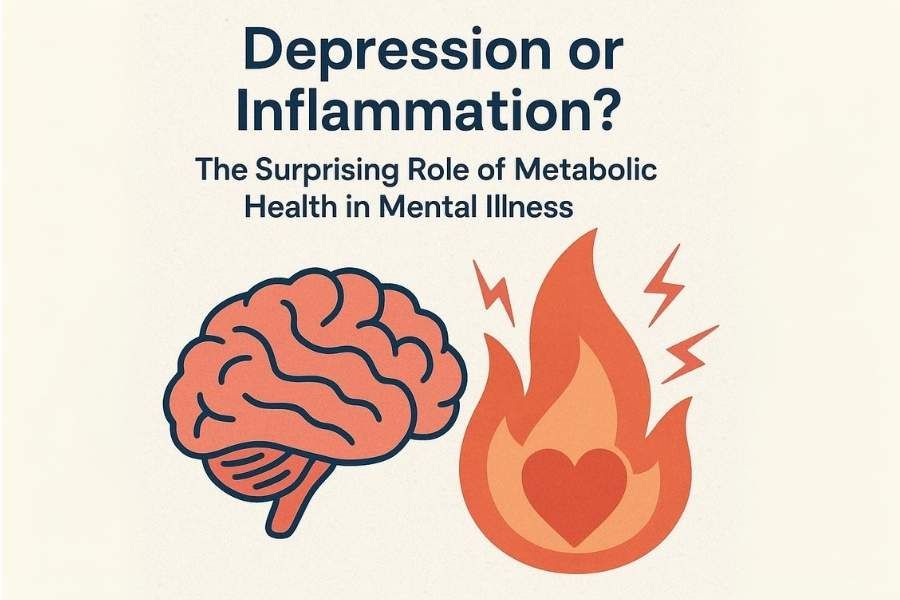Is TMS Appropriate for Me?
By Mehboob Ali Nazarani, M.D.
Published December 10, 2024 · Last reviewed December 10, 2024 · 3 min read · Depression
Is TMS Appropriate for Me?
Transcranial Magnetic Stimulation (TMS) is a safe, non-invasive treatment option for individuals struggling with depression. If you've tried other therapies without success or are seeking a medication-free approach, TMS might be the solution you've been looking for. This article will help you determine if TMS is right for you by exploring its benefits, suitability, and common considerations.
What Is TMS?
TMS is a cutting-edge treatment that uses magnetic pulses to stimulate specific areas of the brain involved in mood regulation. It's particularly effective for patients with treatment-resistant depression (TRD) who have not found relief through traditional methods like medication or therapy.
Who Can Benefit from TMS?
TMS is suitable for individuals with:
- Treatment-Resistant Depression (TRD):
- If you've tried at least one antidepressant without success, you may be a candidate for TMS.
- Intolerance to Medications:
- TMS offers a medication-free option for those who cannot tolerate antidepressants due to side effects or other health concerns.
- Preference for Non-Invasive Treatments:
- If you're looking for an alternative to medications or invasive procedures, TMS is an excellent choice.
- Mild to Moderate Treatment Resistance:
- Studies show that patients with fewer previous treatment failures often respond better to TMS.
When Is TMS Not Appropriate?
TMS may not be suitable if you have:
- Metallic Implants in the Head or Neck:
- This includes devices like cochlear implants or aneurysm clips that can interact with the magnetic pulses.
- A History of Seizures or Epilepsy:
- TMS is not recommended for individuals with a personal or family history of epilepsy.
- Severe Substance Use or Withdrawal:
- Conditions that lower the seizure threshold need to be addressed before starting TMS.
- Pregnancy:
- While TMS is generally safe, it's not typically recommended during pregnancy due to limited research.
What to Expect During TMS Treatment
- Initial Evaluation:
- Your provider will review your medical and mental health history to ensure TMS is safe and appropriate for you.
- Treatment Sessions:
- Each session lasts about 30–60 minutes. Patients remain awake and alert while a coil is placed near their head to deliver magnetic pulses.
- Treatment Course:
- Most patients undergo 20–30 sessions over 4–6 weeks, with noticeable improvements often appearing after several sessions.
Common Side Effects
TMS is generally well-tolerated, but some patients may experience:
- Mild Scalp Discomfort:
- This may occur during the session where the coil is placed. It is temporary and often diminishes with subsequent treatments.
- Temporary Headaches:
- Mild headaches can occur after treatment and are usually manageable with over-the-counter pain relief.
- Fatigue or Lightheadedness:
- Some patients report feeling slightly fatigued or lightheaded after sessions. However, these effects are mild and do not typically interfere with daily functioning.
- Facial Twitching:
- Brief and harmless muscle twitching may be noticed due to nerve activation near the treatment area.
These side effects are generally short-lived and resolve quickly, making TMS a comfortable and well-tolerated option for most patients.
Is TMS Right for You?
TMS is a promising option for individuals who haven't found success with other depression treatments or are seeking a non-medication alternative. However, it's essential to undergo a thorough evaluation with a qualified TMS provider to ensure it's the right fit for your needs.
Next Steps
If you think TMS might be the right treatment for you, contact our clinic today to schedule an evaluation. We'll guide you through the process and answer any questions you have about this innovative therapy.
Or, if you prefer to learn more about TMS therapy before setting up a consultation, click the button below:
Disclaimer: This article is for informational purposes only and should not replace medical advice from a qualified healthcare provider.
This article is part of our approach to whole-person psychiatric care. If this resonates with your experience, our team is here to help.

Mehboob Ali Nazarani, M.D.
Board-Certified Psychiatrist
Mehboob Ali Nazarani, M.D.
View full profile →Related Articles
 Depression
DepressionMehboob Ali Nazarani, M.D. · Mar 2, 2026 · 5 min read
The Science of Awe: How Wonder Reduces Stress and Supports Mental Health
Research shows that experiencing awe, whether through nature, music, or everyday wonder, reduces stress, eases depression, and improves well-being. Learn practical ways to bring more awe into your life.
Read article Depression
DepressionMehboob Ali Nazarani, M.D. · May 22, 2025 · 2 min read
What Nearly 100 Years of Happiness Research Says — And 6 Simple Ways to Feel Better Today
Discover what the longest-running happiness study reveals about well-being, and learn 6 practical strategies backed by science to boost your happiness today.
Read article Depression
DepressionMehboob Ali Nazarani, M.D. · Apr 17, 2025 · 5 min read
Depression or Inflammation? The Surprising Role of Metabolic Health in Mental Illness
Learn how chronic inflammation driven by poor metabolic health may be fueling your depression, brain fog, and fatigue—and what you can do to reduce it naturally.
Read article